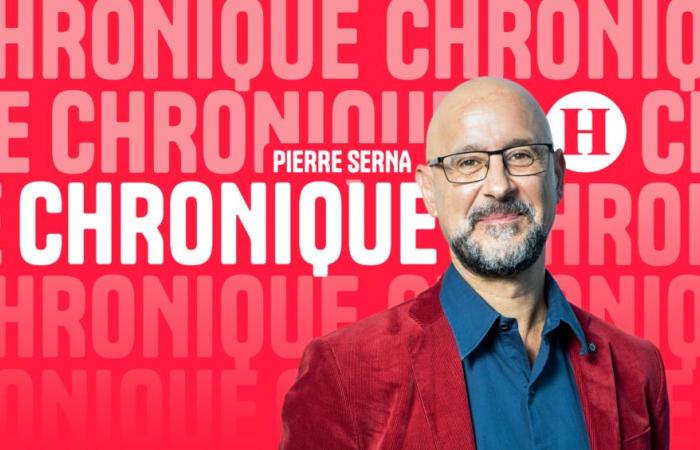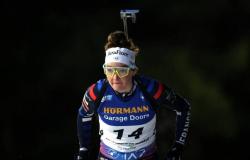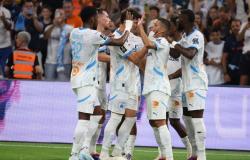While the 80e anniversary of the liberation by the Red Army of the concentration camps in the eastern part of Germany is approaching, it is not so much a duty of memory which is imposed but an even stronger prohibition not to forget which obliges each and all of us. You have to dare to watch, then read the comic strip “Kinderzimmer” (the children's room) that Ivan Gros composed based on the novel by Valentine Goby, for which she signs a preface of beautiful depth.
How to write “the impossible plausibility”, how to draw the improbable possibility when telling the story of these 132,000 women and children who were herded, persecuted, beaten, starved in Ravensbrück and of whom 90,000 did not return? Take your courage with both hands to turn the pages, the worst following the worst, with two eyes, we dare to write, the unspeakable following the unrepresentable.
You have to read, see, reread, review, decipher, dissect, decipher, put down the work, pick it up again, go back, go directly to the remarkable documentary file at the end, and pick up the thread of an unbearable story that we must confront in order to restore dignity to these tens of thousands of women engulfed in pure barbarism. The author himself, perfectly aware of the terror he is showing, is obliged to take pauses, long double pages stuffed with rectangular speech bubbles where he never stops questioning what he is doing, how he is must do so in order not to fall into pathos, to be as close as possible to a reality so unreal that it will always escape.
Ivan Gros spent thousands of hours, over ten years, copying freehand the rare saved drawings of 20 women imprisoned in the camps.
To give an account of what was, as closely as possible to what was, the author chooses two different paths. The first is fiction. Mila is a French resistance fighter who was arrested while pregnant and then deported. In this machine of death topped by the chimneys of the crematoriums, she will give life, she will give birth. Mila wants this child, she cherishes him, but alone, this is impossible. For him to survive, all the women around him must help him.
Only the solidarity of all allows the child, who becomes that of all, to survive. A poor pacifier, miserable linen, a poorly sewn blanket, but it is all the beauty of life against the daily horror, against hunger, the cold, the exhausting work, the filthy latrines, the beatings, the humiliations, punishments, insults, dysentery, typhus and omnipresent lice… until we come back.
The second way is the chosen aesthetic. Ivan Gros spent thousands of hours, over ten years, copying freehand the rare saved drawings of women who sketched, scribbled, left a trace of what they lived, what the author calls “proof by drawing”. Fragile papers, minimal techniques based on pilfered mines, clandestine testimonies, figurative resistance, assumed clandestinity, these drawings, as the art historian Georges Didi-Huberman asserts, remain in “survival”alongside the women who survived.
Betting on drawing not like them, but through them, placing himself in the shadow of the legacy of Käthe Kollwitz and her dark line, Ivan Gros can then claim a figurative expressionism to draw the “undrawable” and render tribute to the 20 women whose drawings have been preserved. No one can emerge unscathed from this reading which lays life bare, not that of the nudity of bodies but the nudity which shows “humanity in all its inhumanity”. Of course, Sacha will live, but the last words resonate strangely in our present. “The war is not over. »
“Kinderzimmer”, by Ivan Gros, based on the novel by Valentine Goby, Actes Sud BD.
The journal of free intelligence
“It is through extensive and exact information that we would like to give to all free intelligences the means of understanding and judging world events for themselves. »
Such was “Our goal”as Jean Jaurès wrote in the first editorial of l'Humanité.
120 years later, it hasn't changed.
Thanks to you.
Support us! Your donation will be tax-free: giving €5 will cost you €1.65. The price of a coffee.
I want to know more!






